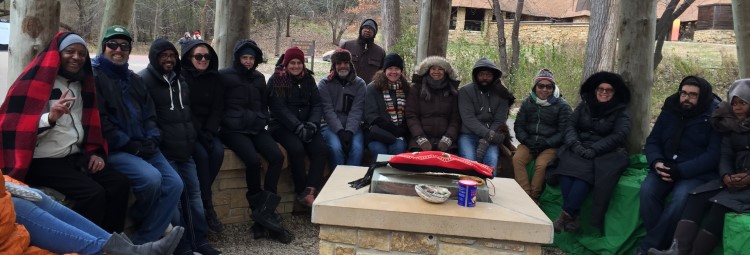
Midwest staff retreat AFSC
Dear Friends,
Warm greetings from AFSC to all Friends throughout the Midwest! I pray that this letter finds you, your family and friends, your monthly meetings and churches, and your yearly meetings all healthy and safe.
To call these unusual times would, of course, be a vast understatement. In many ways, the coronavirus pandemic has changed everything; in some ways, nothing. In this letter, I’d like to introduce myself briefly and then share about AFSC’s work throughout the Midwest, with a special focus on how we’re responding to the pandemic and how we hope to engage with Friends more deeply in the year to come.
While AFSC staff will miss the chance to join you in person this summer for fellowship, we look forward to connecting online. It’s a paradox that, sometimes, physical distancing can bring us closer together. I invite and encourage you to be in touch with me via email SGoens@afsc.org or by phone at 651-383-3505. I’m a person who loves stories, and I hope you’ll share yours with me.
I began my service with AFSC in 2012 as the director of the new Healing Justice Program in the Twin Cities. Starting a program from scratch was both exciting and challenging, and I was tremendously fortunate to develop close and lasting relationships with Friends and other community partners who shared a commitment to justice. The Healing Justice Program combines anti-racist education and organizing with restorative practices to provide young people and their adult allies with the skills and tools to advocate for change. In 2018, I became Associate Regional Director for the Midwest and, since December 2019, have served as Interim Regional Director following Brant Rosen’s return to full-time service as a rabbi with Tzedek Chicago.
My journey with AFSC continues to be exciting, challenging and spiritually nourishing. Although the regional office is still located in Chicago, I live in Minneapolis with my spouse, our daughter and our dog and cat.
I can’t adequately describe how moved I have been by AFSC’s response to the pandemic. Even before the virus reached the US, our staff were sounding the alarm about the deadly danger it posed to people in already vulnerable situations, including prisons, jails and detention centers. We warned that COVID-19 would disproportionately affect people of color and people made poor by our economic system. Sadly, our warnings have proven accurate.
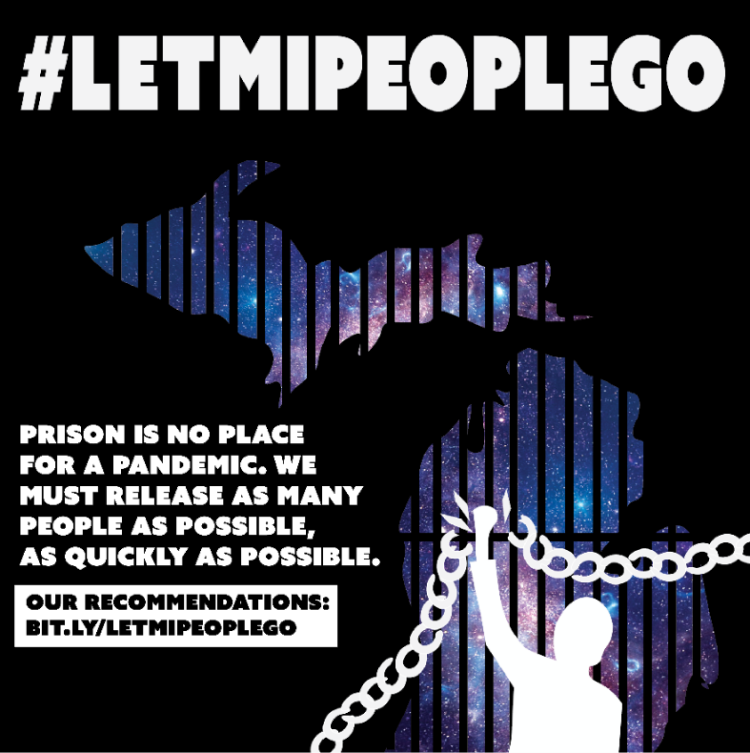
The AFSC Michigan Criminal Justice Program staff have spent countless hours on the phone with loved ones of people in prison. We’ve organized a Facebook support group, held weekly calls for loved ones, and offered “Twitterstorms” to pressure the governor and corrections administrators to free as many people as possible and ensure the safety of everyone – prisoners and staff – inside. While we’ve made some progress, as of this writing, the pandemic is exploding inside prisons, threatening the well-being of thousands. It’s no small irony that Michigan was one of the first states to abolish the death penalty, and yet is now imposing a de facto death sentence. Here’s a recent opinion piece from AFSC.
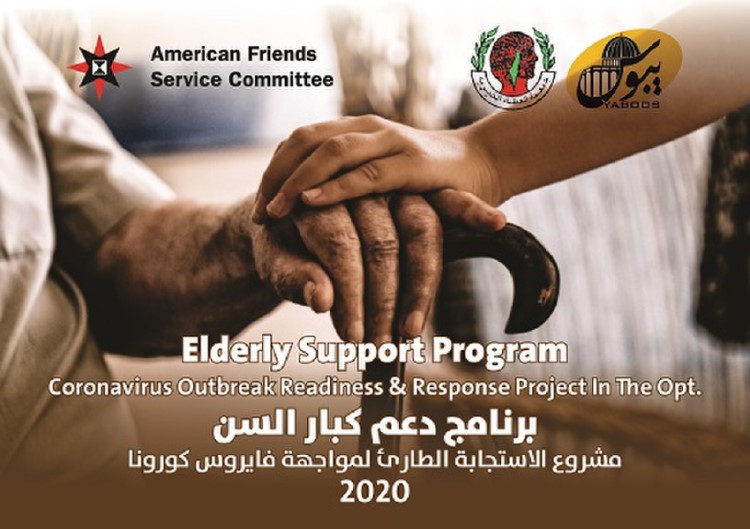
In Chicago and across the nation, AFSC’s work in support of Palestinian human rights is highlighting the dire threat the virus poses to people in Gaza, which has already suffered terribly because of a stifling blockade. One of the most densely populated places in the world, Gaza is denied the infrastructure and resources to respond to this crisis. Learn more at Gaza Unlocked, and support our relief efforts for elders in Gaza.
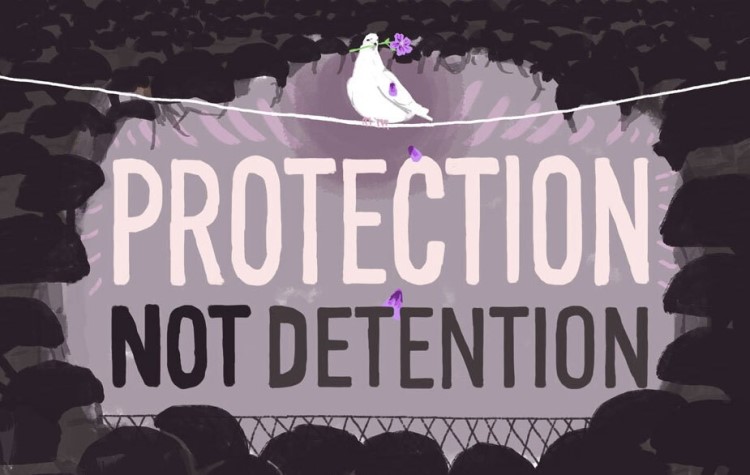
Another component of AFSC’s work on Palestine is our No Way to Treat a Child campaign, organized jointly with Defense for Children International-Palestine. With the help of the growing Quaker Palestine Israel Network (QPIN), we are building awareness of and support for HR 2407, the “Promoting Human Rights for Palestinian Children Living Under Israeli Military Occupation Act." Incredibly, the number of Palestinian children detained by the Israeli military has gone up since the coronavirus pandemic began. Please urge your members of Congress to take action, and please sign this petition in support of Palestinian children. Here’s further information on how Quakers can get involved.
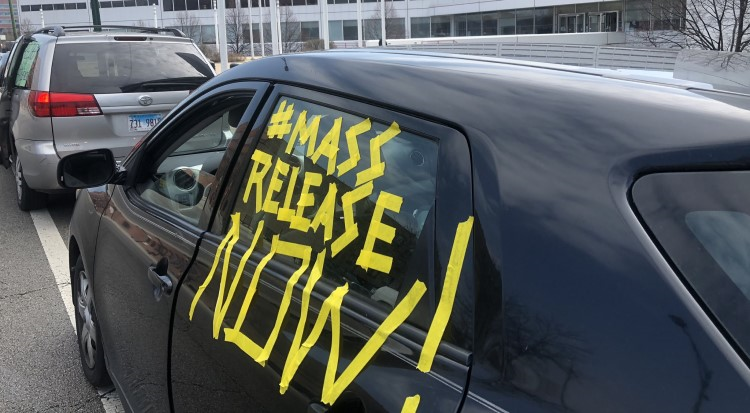
AFSC’s Peacebuilding work in Chicago includes Communities Against Islamophobia and, more recently, bystander intervention training to counter increasing anti-Asian attacks. Working closely with partners, AFSC has made real progress in exposing so-called “Countering Violent Extremism” programs, releasing Criminalizing Mental Health: A Report on Anti-Terrorism Initiatives in Illinois. As the virus has spread, AFSC has been working closely with partners – sometimes in carefully orchestrated car caravans – to call for the decarceration of prisons, jails and detention centers. Staff have also worked with young people to raise their awareness of the power of using the Freedom of Information Act (FOIA) to expose information governments would rather conceal.
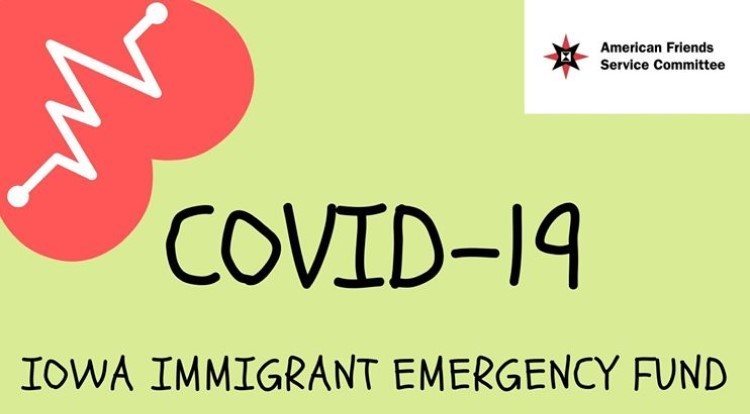
In Iowa, along with establishing the Iowa Immigrant Emergency Fund, operating an immigration hotline and strengthening community response teams across the state, AFSC organized a coalition of nearly 70 groups to call upon the governor to provide more protection for the thousands of immigrants and refugees who work closely together in the state’s meatpacking plants. Several COVID-19 outbreaks in the plants have sickened thousands and killed dozens while exposing another vulnerability of our nation’s food system, which exploits people deemed “essential” but treated as expendable. Despite the challenges of physical distancing, AFSC’s Legal Services Program continues to assist immigrants, including DACA recipients as they renew their status prior to the US Supreme Court’s possible ending of the program. The Iowa program has begun a three-year process of devolvement, joining with Iowa Justice For Our Neighbors to form a new immigrant advocacy and legal services organization.
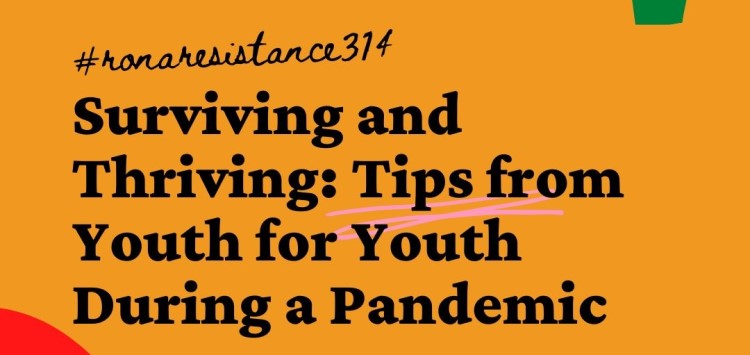
A youth art contest in St. Louis is one creative way that AFSC is encouraging young people to express how the community should support their needs in this crisis. AFSC is also working as part of a coalition calling for local and state officials to adopt certain Covid-19 related demands around protections for the working poor, the unhoused, and people caught up in the criminal legal system. AFSC encourages everyone to sign this petition.
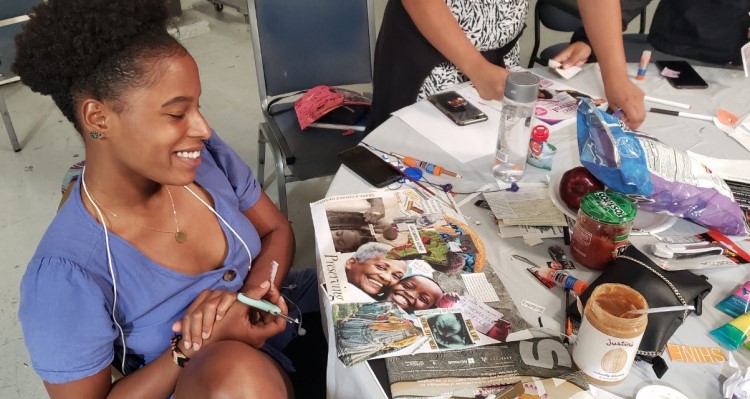
In the Twin Cities, staff continue work with St. Paul Public Schools, holding virtual community building circles and hosting implicit bias circles for one of the schools. AFSC staff recently organized a townhall for youth to hear how they’re doing during this time and generate interest for the youth agenda organizing work that will happen later this year. AFSC continues to do coalition building with other organizations, as well. For lively updates, check out the Youth Undoing Institutional Racism-Twin Cities page on Facebook.
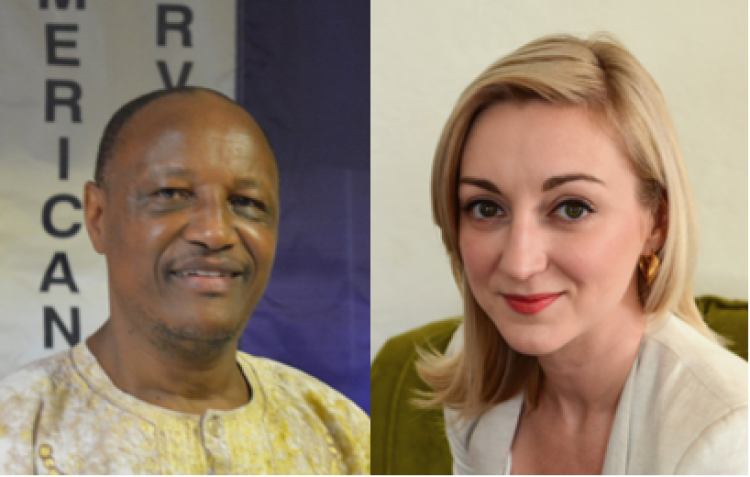
There’s no way to sugarcoat the pain felt in the Midwest Region last fall when AFSC announced the end of two Midwest programs due to financial constraints. Please take a moment to view these photo tributes to Migwe Kimemia, (above left) director of the Dayton Peace and Trade Justice Program, and Erin Polley, who directed the Indiana Peacebuilding Program. We honor their work and that of countless volunteers over the years.
Engaging with Friends
Thanks to the work of AFSC’s Friends Relations staff and committee, as well as the Midwest Executive Committee and Corporation members, our engagement with the Quaker community continues to deepen and expand. Along with the Quaker Palestine Israel Network (QPIN) and No Way To Treat a Child engagement mentioned above, we encourage you to consider the following opportunities:
Become an AFSC Liaison
An AFSC Liaison is a member of a monthly meeting or church who engages their meeting in AFSC activities. The Liaison’s roles include announcing AFSC activities and forwarding engagement opportunities to your meeting’s newsletter, listserv and/or social media sites; participating in AFSC Quaker conference calls; and mobilizing your meeting for specific engagement opportunities. Contact Lucy Duncan at LDuncan@afsc.org for more information.
Anti-racist accompaniment
Anti-racist accompaniment is a core spiritual practice that AFSC promotes to Quakers. AFSC has many resources to support Quaker meetings in adopting this practice. Here are two of them:
Quaker Social Change Ministry: Establish a group in your meeting to gather for spiritual refreshment and support as you walk with those most impacted for social change. A manual for the practice as well as several webinars are on AFSC’s website here: www.afsc.org/qscm.
Changing Systems, Changing Ourselves is an e-course to mindfully learn the practices of accompaniment. Though registration for the current live course is closed, you can find recorded webinars, facilitator’s guides and resources on AFSC’s website here: www.afsc.org/csco.
Thank you for your support, and please keep in touch
Again, I invite and encourage you to be in touch with me via email SGoens@afsc.org or by phone at 651-383-3505. Click here to subscribe to the monthly AFSC Midwest Digest, and here to donate to the Midwest region. Thank you!
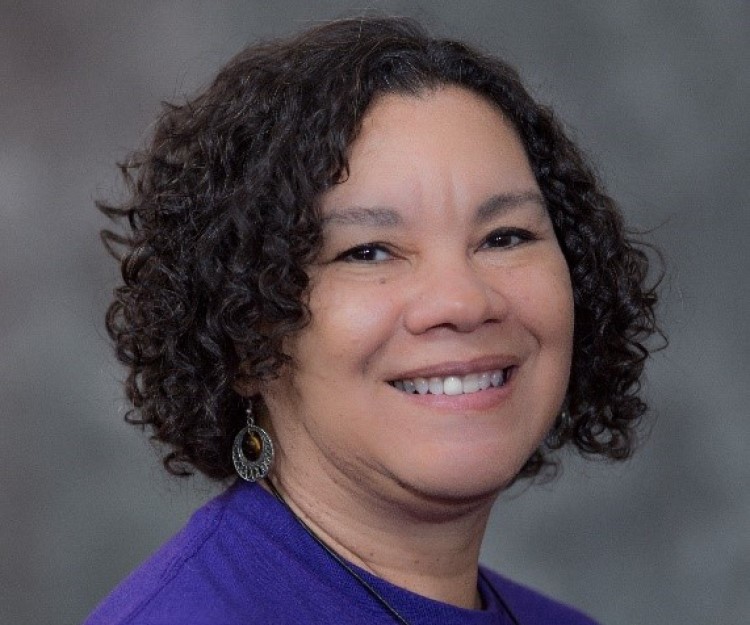
Sharon Goens-Bradley, Interim Regional Director, AFSC Midwest Region